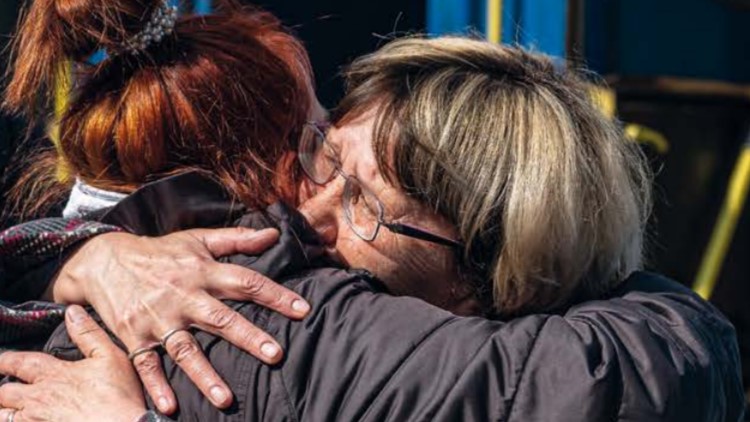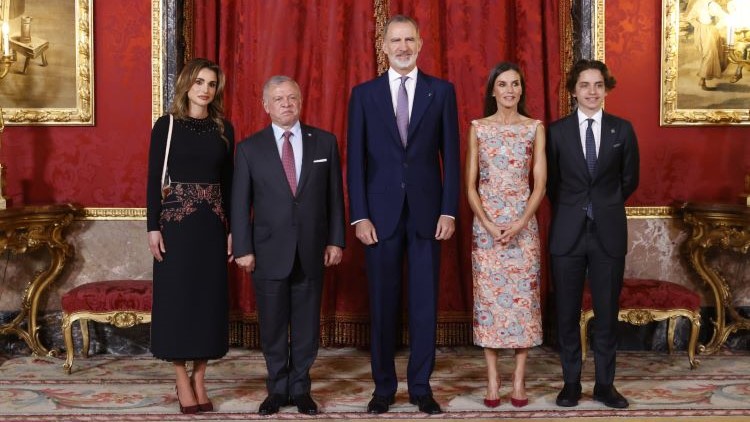Eduardo González
Humanitarian organizations have taken advantage of the Refugee Day, which is celebrated today around the world, to recall the shortcomings of the asylum system in Spain and to claim that the “exemplary” reception that people fleeing Ukraine have received should be applied to those displaced from other conflicts and international crises.
The Spanish Commission for Refugee Aid (CEAR) has presented a package of 37 measures to political parties in the run-up to the July 23 general elections with the aim of improving international protection and preventing “political uncertainty and electoral interests from undermining the human right of every person to seek refuge”. Among these proposals, CEAR -which yesterday presented its XXI Annual Report: The situation of refugees in Spain and Europe– highlights the implementation of a social and political pact that “protects the right to asylum against the continuous attacks it has been suffering in recent years”.
“Among the applicants, hundreds had to risk their lives at sea or in fence jumps like those that triggered the tragedy of Melilla,” denounces CEAR. For this reason, the organization “asks political parties to prioritize in their political agendas to guarantee access to the asylum procedure in a legal and safe way, through embassies and consulates, as stated in Article 38 of the Asylum Law”, and proposes other measures, such as the issuance of humanitarian visas, the approval of “an ambitious and permanent resettlement program” and the relaxation of family reunification requirements to prevent refugees from being forced into the hands of traffickers and “terrible tragedies like the one in Greece last week”.
According to CEAR, 118,842 people applied for asylum in Spain last year, without counting the thousands of people “made invisible” because they could not get an appointment. Spain “was, for yet another year, the third European country with the most requests, only behind Germany and France, and third from the bottom in terms of favorable decisions with 16.5%, only ahead of Malta and Cyprus, and again far from the European average of 38%,” it warns.
The organization also denounces “the double yardstick in two of the main milestones that took place last year”, specifically, between the Russian invasion of Ukraine, in which “European countries, including Spain, demonstrated that with political will it is possible to welcome and guarantee rights in record time”, and “the tragedy that took place in Melilla last June 24, in which at least 37 people lost their lives, 77 are unaccounted for and 470 were returned illegally, without truth, justice and reparation for the victims and their families”.
“You cannot open the doors in an exemplary manner to people fleeing a terrible conflict such as the one in Ukraine and, at the same time, violently shut them tightly shut to those who have to escape from other terrible forgotten conflicts,” warned Estrella Galán, director general of CEAR. “Most of the victims of the Melilla tragedy were fleeing from a country in conflict such as Sudan, and were met with disproportionate violence, despite the fact that these people, when they manage to arrive, have high rates of asylum recognition in Spain,” she added.
CEAR also affirms that the Spanish Presidency of the EU Council is “a historic opportunity” for Spain to “lead a migration policy that puts rights and people at the center”. To this end, it states, it must defend “a guaranteeing position in the negotiations of the New European Pact on Migration and Asylum based on the principles of solidarity and shared responsibility”.
“However, in the last EU Council of Ministers, the negotiations suffered a dangerous drift by proposing the extension of the concept of safe third countries, including Morocco, Libya, Tunisia or Turkey, among others”, and betting, at the same time, “for an a la carte solidarity mechanism, in which Member States can choose between relocating refugees or financing third countries in terms of migration and border control, an unacceptable proposal that puts a price on human rights“. The proposal of the Council of Ministers of Justice and Home Affairs of the European Union, adopted on June 8 in Luxembourg, was highly praised by both the Minister of the Interior, Fernando Grande-Marlaska, and the European Commission, considering that this agreement “paves the way” for the approval of the Pact on Migration and Asylum before the European elections in June 2024.
CEAR also urges the Spanish Presidency to “promote measures to combat xenophobic, racist and hateful attitudes and narratives, as well as misinformation in the media and online platforms, which harm the dignity, stigmatize and criminalize migrants and refugees, while seriously threatening European social cohesion”.
Red Cross and Save the Children
On the other hand, Red Cross warned yesterday that the global total of refugees and internally displaced persons “remains at historic highs” because of persecution, human rights violations, disasters, climate emergencies, new and old conflicts and other crises. “In Spain alone, asylum requests are 82% more than in the previous year, after leaving behind the border restrictions imposed during the pandemic, and despite the obstacles people are facing in accessing the asylum procedure,” it continued.
According to the Red Cross, Spain received last year more than 161,037 people from Ukraine “who obtained temporary protection, since the historic activation of this mechanism in March 2022”, and thanks to the implementation of the Reception, Attention and Referral Centers (CREADE), which “has allowed to alleviate the asylum system and guarantee fundamental rights in record time”. However, he recalled that Venezuela (45,748), Colombia (36,012), Peru (8,937), Morocco (3,905) and Honduras (3,017) were the five main nationalities of origin of people seeking asylum and, therefore, “Latin America continues to be the region with the highest number of people seeking refuge in Spain”.
For its part, the NGO Save the Children warned yesterday that the welcome shown by the EU and its Member States to children from Ukraine should “set the tone for the future“, since, since the outbreak of the conflict, “Europe has taken in almost twice as many people as during 2015 and 2016, when there was an increase in arrivals due to the war in Syria”. However, he warned that one in 50 refugees and migrants die or disappear on the Mediterranean routes to Europe and girls and children and adolescents suffer violence and inhumane conditions upon arrival. “European countries and the EU have shown that these deaths, violence and child abuse are avoidable in their reception of children from Ukraine over the past year.”







